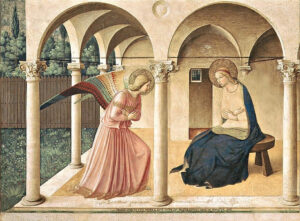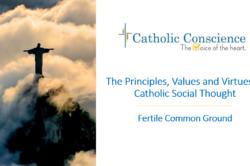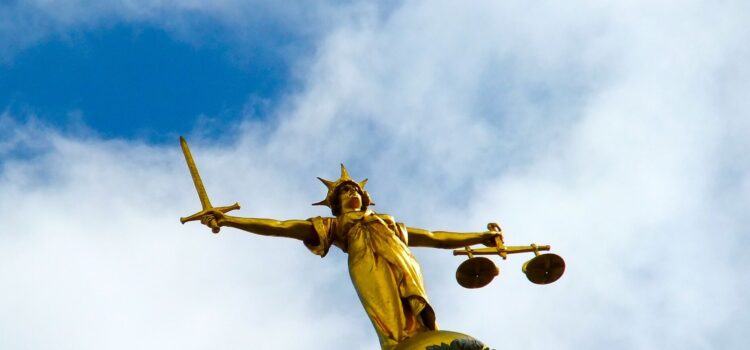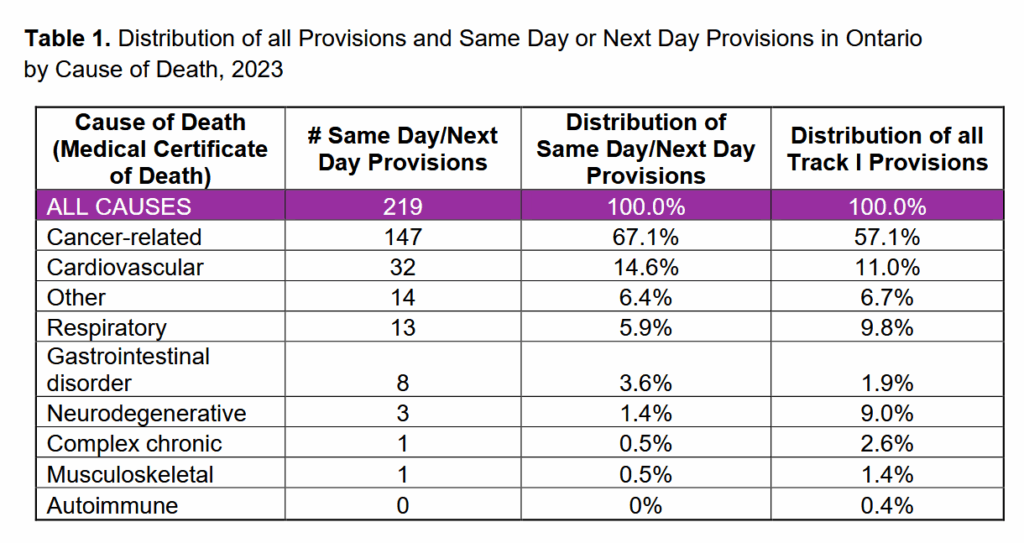At second reading, the bill’s sponsor Senator Pamela Wallin explained that:
She has reintroduced the bill in its existing form for the sake of time and because committees have done some work on this over the last 10 years, but is adding a preamble recognizing the new law enacted by the Province of Quebec, which she hope will serve as guidance. On the advice of the chamber’s law clerks, this preamble will allow the committee to reference the new law in their study of, and amendments to, this bill. To be clear, she seeks and is open to amendments because there have been many important legal developments in Canada.
Senator Wallin further stated that:
Death and dying are a part of life. For better or worse, we are the only species that is actually aware of the inevitability of our own death. This motivates us, helps us find purpose and makes moments meaningful and precious. If we are both lucky and willing, such awareness will also prepare us for a dignified end to our own life and help us face that loss gracefully and with compassion.
We also live in a time in which we can reasonably foresee death. We can diagnose terminal illnesses, and we can spot the signs of physical and cognitive decline scientifically and with great accuracy, but in the pursuit of longevity, we must always consider quality of life.
I believe it is our right and responsibility to be able to make our own end-of-life decisions. It is our burden, our bodies and our choice. I have come to my views by watching both of my parents die in two very different but equally tragic ways: my father to painful cancer, my mother to Alzheimer’s. Their suffering was unnecessary and preventable. A graceful exit was the only kindness they asked for, to be spared pain and indignity. My father had no access to MAID, as he lived in a rural area in Saskatchewan. For my mother, it was not possible under the law even to ask.
These are difficult issues for families… As a society, we accept DNRs and living wills for the comfort they offer. If you are undergoing life-threatening surgery or want to state your wishes that, in case of an accident, you don’t want extraordinary measures employed just to keep you alive in a vegetative state, then this is what they are there for. For me, advance requests are simply part of that continuum.
Allow me to offer a little more context. When the government introduced Bill C-14, An Act to amend the Criminal Code and to make related amendments to other Acts (medical assistance in dying) in 2016 in response to a Supreme Court ruling in the Carter case, it was about affording individuals the right to make their own end-of-life decisions. The government put in place — as we did in this chamber — a series of safeguards to guard against a slippery slope of access and to give more time for experts to reflect on the ethical complexity of these issues.
The concern was that an assisted death should not replace essential support and services for the under-represented, the unwilling or those who could have been treated or cared for but were failed by an unjust system. We cannot underestimate the importance of these concerns.
I served on the joint MAID committee for several years to study these very matters. MAID is not an alternative to poverty, treatment, support or family. It should and must always be a choice. To protect medical practitioners, safeguards were put in place to make sure that those requesting to undergo MAID must state — literally, in the moment before their medically assisted death — that they remain certain in their wish to die. In the law, it’s called the waiver of final consent.
The thinking was that this would prevent misadministration, ensuring that the patient, their doctor, their family and loved ones could all be absolutely certain that a MAID recipient was actually ready to die. However, instead of making things easier, it actually created more ambiguity for patients.
It created a tragic Kafkaesque scenario for people who were eligible to undergo a medically assisted death but, for instance, had an advanced form of cancer that they knew would worsen and, in the end, would prevent them from actually making that final consent aloud. Then they would have to end their own lives prematurely, to take their own life much sooner than needed, simply because they might not be physically able to consent in the late, painful stages.
This is exactly what happened with Audrey Parker, a 57-year-old Nova Scotian woman with stage 4 breast cancer, who had to end her life two months before Christmas due to this rather poorly conceived “safeguard” in the law. Countless others have likely had to make similar decisions — we know their stories — before the law was finally changed.
Thanks to Audrey’s voice and the work of her family, the government finally included what we now call “Audrey’s Amendment” to the law.
It was an important first step as it offered an early form of advance request, but, again, only for those who have already been assessed and approved for MAID and only when they are very close to the end of life.
Then came along a key court decision in the Truchon and Gladu case: Jean Truchon and Nicole Gladu launched a court challenge to seek medical assistance in dying, or MAID, but they had been denied because their deaths were not naturally foreseeable. Both had degenerative diseases causing persistent and intolerable suffering — Truchon with cerebral palsy and Gladu with post-polio syndrome.
In 2019, the Superior Court of Quebec agreed that the precondition was unconstitutional. They called on Quebec and the federal government to respond. This is very important because it removed the necessity of a “reasonably foreseeable death,” creating in a sense a two-track system for access to MAID, one where death is imminent and a separate process where death is not foreseeable — inevitable but not foreseeable.
Colleagues, this was the context in which I introduced an amendment to the law, and I later introduced this bill to fully allow for advance requests. My hope was to extend the right to an advance request to those whose deaths are not imminent but inevitable, and to let Canadians have that choice — the right to choose a planned and peaceful end of life. Why would we not offer that choice to those trapped in a world of pain or in the diagnosis of dementia, which robs you of your right to actually make end-of-life decisions?
Boomers are turning 65 at a rate of 1,000 a day. By 2031, 1,000 or more will turn 85 every day. That is a quarter of our population. Increases in life expectancy have been accompanied by more and more years of age-induced disability. Modern medicine has given us longer life but has also made us victims of overtreatment, which too often offers quantity of life but not quality of life.
Where the issue of advance requests is so fundamental is for those experiencing cognitive decline, where they slowly and knowingly lose their grasp on reality and descend into what can only be described as the living death of dementia. One in four Canadians over the age of 85 suffers from dementia. For years, it was the law that once diagnosed, they were no longer considered to have the capacity to make decisions from that moment forward. We know that is not true, but it is the Catch-22 in the law.
Many people suffering from forms of dementia like Alzheimer’s still cannot access MAID because their deaths are not considered reasonably foreseeable. This is why the timing issue is so important, and, therefore, we must look at when and how often to update advance requests. Before we lose our capacity, let us make an informed choice about our future. It offers at least a little sense of control when soon you will have none at all.
When you lose your memory, you lose you. You lose your friends whom you no longer know, you lose your family whom you loved and you lose the feeling of being loved. Most important of all, you lose that sense of self — who you truly once were, what you accomplished and the lives you touched — and you lose the love and respect once so freely offered. It’s there, but you cannot recognize it or see it.
That was quite literally true of my mother. She was a schoolteacher; she changed lives and she saved lives. She was a role model before we even used that phrase. To watch her decline was heartbreaking. She stopped knowing what she had done for so many years and for so many others. The end of memory is brutal. It is a denial of our time as people who mattered and made a difference. It is a cruel and unusual punishment.
There are those who will argue we cannot ever truly know what goes on in the minds of those with dementia or Alzheimer’s. There may be moments of clarity or recognition, and we might think that if folks are happy and tapping their toes at the weekly music session, then they do have a quality of life. Those in the old folks’ homes call it happy dementia. Unfortunately, that is mostly about us wanting to feel better about our loved one because mere moments later, fear can once again engulf until the person simply knows no more.
My mother could not articulate her wants and needs the way my father had on the eve of his surgery, and that is the inherent unfairness of one diagnosis versus another — that old Catch-22. As we had discussed so often, she never wanted a life without meaning or the awareness of family, history, her past and her own story.
Families face this crisis every single day in this country. Canadians with incurable or irreversible medical conditions suffer needlessly in hospital beds and care homes. Sadder still, they suffer sometimes with loved ones close at hand but unrecognized, so they suffer alone and in fear. The worst of all fates is no longer knowing who they are or once were.
The time is now to be brave and to embrace the choices of those we love and to give them — if, and only if, they so choose — the right to leave us with dignity, just as they lived and loved with dignity. I ask you to consider this bill with both your head and your heart and to send it to our colleagues on the committee to make it better and to do so in a timely manner. Thank you.
Some Hon. Senators: Hear, hear.
Hon. Julie Miville-Dechêne: Thank you for your speech. You’re right, this is an extremely difficult issue.
You mentioned Quebec, which passed legislation on this issue. Actually, this legislation sparked a major debate. Several doctors began challenging the idea of consent to death at some future time because they said they didn’t have a way to assess a person they didn’t know prior to their illness. They said that, years later, they weren’t able to ascertain the consent of a person with, as you put it, happy Alzheimer’s, or a condition that doesn’t seem to cause the patient any problems.
I realize that you said in your speech that consent is given well in advance. That poses an ethical problem for doctors who don’t necessarily know the patient many years later. They can’t just say, “Well, okay, I’m here to fulfill a contract without exercising my medical judgment.”
That was a major debate in Quebec. I wouldn’t say it was ever resolved, but it does raise the question of that period between signing and death.
Senator Wallin: In the first place, what they’ve done in the Province of Quebec is the government has asked Crown prosecutors not to prosecute because this issue is in the purview of the Criminal Code, which is exactly why we are trying to do it. We want to protect the individuals who engage in this.
I have to say that I know many MAID providers across the country. Their lives are difficult. This is not something that is easy to do. They do it because they are compassionate, because they do care and because they have promised to give the appropriate treatment to those in need.
The question of timing is why I think this is, in fact, even more crucial than it used to be. I’ve talked to many ethical experts on this, as well as medical professionals and families who have gone through this and had this discussion amongst themselves.
This is not just when you are 29 years old and write a note, saying, “I don’t want to live when I get old.” We don’t appreciate it. Many of us in this house are much closer to it than we were at an earlier time when we thought this age was old. Now we don’t think that.
These are issues that have to be wrestled with: when and how. I have certainly been given personal advice in my own situation to have this discussion with family, medical professionals and legal professionals, and to ensure that as many people as possible are aware of this so that there is testimony to this effect should you move to another province or your doctor retires and you have to deal with someone else. These issues are all real.
This is why there needs to be a continual record of this, so that there is evidence that this is not a spur-of-the-moment thing, that you had a bad day or that someone tried to convince you that this was a better idea. This is a process. The more people capture that sentiment and write it down, the more they talk to their families and professionals, the more it will give comfort, not only to the family, not only to the individual who has some hope that their wishes might be carried out, but to those on the legal side of the issue who want that comfort, to know that they are doing the right thing. Even though they might not know the individual, the history is there; it has been captured. They will have that to give them reassurance that they are doing the right thing, and that, in the end, they are providing their patient, albeit a new one, the care that they asked for.
Hon. Paula Simons: Senator Wallin, will you accept a question?
Senator Wallin: Yes.
Senator Simons: As you know, I supported your amendment when we had our debate about extending access. As I am listening to you tonight, I am remembering the day that I took my mother for her assessment, and she received her diagnosis of Alzheimer’s. My mother was a brilliant, witty woman, and she said, “Well, I would like medical aid in dying then.” I had to explain to her that that was not an option and never would be.
By the time she died, she was screaming in terror and agony and in unendurable pain. I did not have any way to explain to her why she was being put through this pain, and it will haunt me to the end of my days. Yet, I don’t know at what point on the spectrum of her last five years we would have said, “All right, this is the day. This is the day that it is unbearable. This is the day that we as a family have to decide.”
This is — I guess — my question. It is easier in the case of someone who is dying of cancer and worries they will lose the capacity to consent. How do we find the moment in which the life of someone with Alzheimer’s disease is deemed to be unbearable?
Senator Wallin: Thank you, Senator Simons. I don’t think we can ever say that Monday, June — whatever the day is today — is the day. This is why there exists this notion of an advance request: to come to this conclusion in principle.
I have shared this here before, but there is a fellow whom I have come to know very well, Ron Posno, from London, Ontario. This man did amazing things in life. He was a teacher, a pilot, a scuba diver. He and his wife, Sandy, are in an advance care home now because he was diagnosed early on in 2016 with cognitive impairment. He became, at that point, an advocate for MAID and for advance directives. He has been everywhere, on podcasts — mine included — and documentaries.
He sat down and put his mind to this because he knew that this was inevitable, as you did with your mother and as I did with mine. He wrote a list of eight things. It helped clarify his thinking, and it has helped clarify mine over the years: When I am unable to recognize or cognitively and adequately respond with appropriate emotion and thought to family members, care providers or friends; when I become persistently abusive, either verbally and/or physically; when I become frequently lost or wander without awareness or knowledge of my whereabouts; when I require physical restraints or a locked door; when I present symptoms of depression or paranoia or melancholia or elective muteness; when I frequently experience visual, auditory, olfactory or tactile hallucinations; when I require assisted personal care because I am frequently incontinent, or when I am unable to eat, clean or dress myself without assistance.
This is what he is guiding us to do. We can’t know that Tuesday of next week is the day. We are going to know in our living state. If we have some combination or all of these things — God forbid — that would be the time. He has done this for us. He has done the homework. He has said:
Think about this. Create your own list. Use my list. Help your family. Help the medical professional, because they can assess these things. The people in the care homes can assess these things.
There is a way not to know a precise moment, but we’ve also learned from the experience of those who had to take their own lives, people who walked into Lake Ontario, or Audrey, who made this decision before Christmas in her own family life, because she didn’t want to go through that or put her family through that another year because it was so close. But if she lost that ability to say, “Now,” or if she lost the ability to say, “I consent. I agree,” then it was going to be too late.
Why would we do that to people, saying, “You have to take your own life,” when we can clearly say to our families, our loved ones, lawyers, medical professionals, society and the world:
We know when we’ve lost quality of life. We know when we’ve lost meaning in life. We know when we’ve lost our sense of self. Please, let me use, and take advantage of, the choices that exist in law.
I think that is what is at the core of this.
Hon. Denise Batters: Senator Wallin, when you introduced this bill in 2022, I asked you a question about independent witnesses who are required by your bill to certify the declaration that’s made by the person who wants to have the future medically assisted death.
At that point, I was asking about a definition for it. You weren’t sure at that point, but seeing that you are introducing a lot of the same bill here, I checked out that portion of the Criminal Code and found the definition for “independent witness.”
My question to you today then is this: In your bill, under subsection 3.22(e), it states about those independent witnesses “. . . a medical practitioner has certified that . . . .”, and then “(iii) each witness is an independent witness as described in subsection (5).” That’s where the Criminal Code part comes in.
In that definition, there are certain things that the medical practitioner would probably be able to ascertain, but I think there are some things that they probably would not be able to necessarily certify. One of those that they would have to certify is:
(a) know or believe that they are a beneficiary under the will of the person making the request, or a recipient, in any other way, of a financial or other material benefit resulting from that person’s death;
There are a couple of other things about which I am a little less sure whether they should be dealt with by that independent witness, or whether the medical practitioner is the proper person to provide that certification. I’m wondering how you would respond to that.
Senator Wallin: The circumstances and the changes in the law, the Truchon case and the moves in Quebec, have taken us down the road, and I think it will change the study and the response in the committee, and perhaps even the definitions. That’s why I have put this forward in this way, which is, let’s wrestle this stuff.)
We are not here to do the easy stuff. We are here to do the hard stuff. We do need to find that.
The medical practitioner, as it stands in Canada, is still under the Criminal Code of Canada. They must be given safety and protection. They need to have other sources feeding into them, particularly if they are not aware of this patient, if for some reason it is somebody they don’t know. That is why building the body of evidence over time and over years is so important. If there is one sole survivor and they are going to inherit the millions, then there has to be other supporting evidence around that.
I know situations where a husband and two children have literally been on three sides of this issue, not two. There is no way to predict, anticipate or prevent what happens. People who have agreed with their mother, with their loved one, that whatever she wants she can have, when it comes to it, when the moment arrives, they lose their willingness and ability to participate. The person has to be protected in that situation, too.
Those are my primary two concerns, which are the person who sought this and the person who must deliver it. We need to find six ways to Sunday to protect them both, to make sure the patient gets what they need and the provider is protected. It’s going to be that way until we take this kind of an issue out of the Criminal Code and make it a health and care issue.
Quebec has done the best it can, given the circumstances, by asking its prosecutors not to prosecute. That’s not a good way. We really have to say this is about life. It’s about the end of life. We need to give people — I keep coming back to it — choices about their life, not force them into some situation where they have to go and take their own life in some horrible situation, or stockpile sleeping pills. I have heard so many stories about this, it just makes me sick to my stomach.
Let’s give people this choice. Let’s protect everybody who is involved. Whatever kind of process we come up with, that we think is best and can recommend, that will be progress down the road.
I would like to present a bill that says to take this out of the Criminal Code completely and forever. That’s a complicated thing to do. I have had this conversation with the law clerks more times than I care.
We need to keep making progress. Here we are in this country, and the only reason governments act and there are changes in the law is when a court intervenes, when some family is going through some tragic or difficult situation, whether it’s Audrey Parker, the Truchons or Carter. We can remember back to Sue Rodriguez and even in our own province the Robert Latimer case.
We put people in such difficult situations because we’re unwilling as legislators to make the hard call. We really have to do the work on this and make some small progress toward choice.
(On motion of Senator Martin, debate adjourned.
Although Parliament’s online Legislative summary states that no similar bill was introduced in previous Parliaments, the bill’s sponsor, Senator Pamela Wallin, states that similar bills have been introduced, debated, and partially passed in several Parliaments over the last decade..
 In the first installment of a series of Rosary reflections highlighting the principles, values, and virtues of Catholic Social Teaching, we consider the Annunciation. The first Joyful Mystery beautifully illustrates application of the principle of subsidiarity in humility and a profound spirit of stewardship.
In the first installment of a series of Rosary reflections highlighting the principles, values, and virtues of Catholic Social Teaching, we consider the Annunciation. The first Joyful Mystery beautifully illustrates application of the principle of subsidiarity in humility and a profound spirit of stewardship.


















